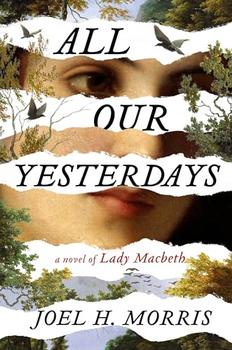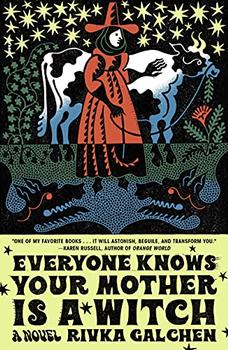Summary | Excerpt | Reading Guide | Reviews | Beyond the book | Read-Alikes | Genres & Themes | Author Bio

Joel H. Morris's debut novel, All Our Yesterdays, is a prequel to Shakespeare's famous tragedy Macbeth, beginning with "the Lady's" marriage to the warlord Macbeth and ending with her learning her husband has been declared Thane of Cawdor (which is where Shakespeare's play begins). The author brilliantly imagines this woman's eleventh-century life, restoring her voice and giving her purpose while vividly describing the world in which she lived.
The story is told from the point of view of two unnamed characters: the Lady (Lady Macbeth) and her ten-year-old son, referred to throughout the novel only as "the boy." It's an interesting approach; most of history, particularly medieval history, records only what adult men's lives were like. Morris instead chooses to concentrate on those who were generally dismissed as unimportant: the women and children of the day.
All Our Yesterdays is a fairly quiet book, though it's full of rich details; there's not a lot of action, since women and children generally stayed home during the time period, waiting for their menfolk to return from war. The Lady spends much of her time managing her household, visiting other nobles, fulfilling her wifely duties when her husband is home and worrying about her son. Her child's life is more varied, as he plays with others, learns skills he will need later in life and navigates a world he doesn't yet understand. Morris includes an incredible amount of historical detail throughout (the Lady chooses fabrics of "damask, sendal [silk] and velvet" for her garments and engages in a board game called Ard Ri; the boy plays with wooden soldiers and has a tutor who shows him how to press "a stylus pen made of a goosewing bone into a tablet covered in wax" to complete his Latin lessons). Although nearly every page contains some reference to items or actions specific to the time period, the narrative is never bogged down by these details. This outstanding representation of the era alone would be enough to recommend the book.
What really makes the novel a standout, however, is how seamlessly the author incorporates elements of Shakespeare's play into the narrative while still making the work his own. The misty fens of Macbeth are ever-present in All Our Yesterdays, as is the overwhelming feeling of a malevolent presence that wishes ill upon the house of Macbeth; one can almost feel the clammy, swirling fog as one reads. Morris even includes mysterious crones delivering cryptic messages to both the Lady and her son, with readers left to watch the prophecies play out in unexpected ways. To be sure, most of the story is concerned with the characters' day-to-day lives, but these mystical women add spice to the tale and help keep it moving along at a good clip. And it's an interesting amalgamation of expertly researched historical fact complementing a well-known ghost story and vice versa.
Morris doesn't so much redeem Shakespeare's Lady Macbeth as provide one possible rationale for the woman she ultimately becomes. Also, because so much of the novel is based on documented history, when the author departs from fact in order to lean into Shakespeare's version of events, it feels a little disappointing. I suspect, however, I'll be in the minority with that critique.
The novel reminded me very much of Maggie O'Farrell's Hamnet, another book about a woman maligned by history, and readers who enjoyed that work will likely enjoy All Our Yesterdays as well. Although some familiarity with Shakespeare's Macbeth might benefit readers, I don't think those who've never encountered the play will feel they're missing much subtext. I highly recommend All Our Yesterdays to anyone who enjoys well-crafted historical fiction, particularly narratives set in the Middle Ages.
![]() This review
first ran in the March 20, 2024
issue of BookBrowse Recommends.
This review
first ran in the March 20, 2024
issue of BookBrowse Recommends.

If you liked All Our Yesterdays, try these:

by Allegra Goodman
Published 2025
A young woman and her lover are marooned on an island in this breathtaking saga, an epic story of love, faith, and defiance from the bestselling author of Sam.

Everyone Knows Your Mother Is a Witch
by Rivka Galchen
Published 2022
The startling, witty, highly anticipated second novel from the critically acclaimed author of Atmospheric Disturbances.
Your guide toexceptional books
BookBrowse seeks out and recommends the best in contemporary fiction and nonfiction—books that not only engage and entertain but also deepen our understanding of ourselves and the world around us.